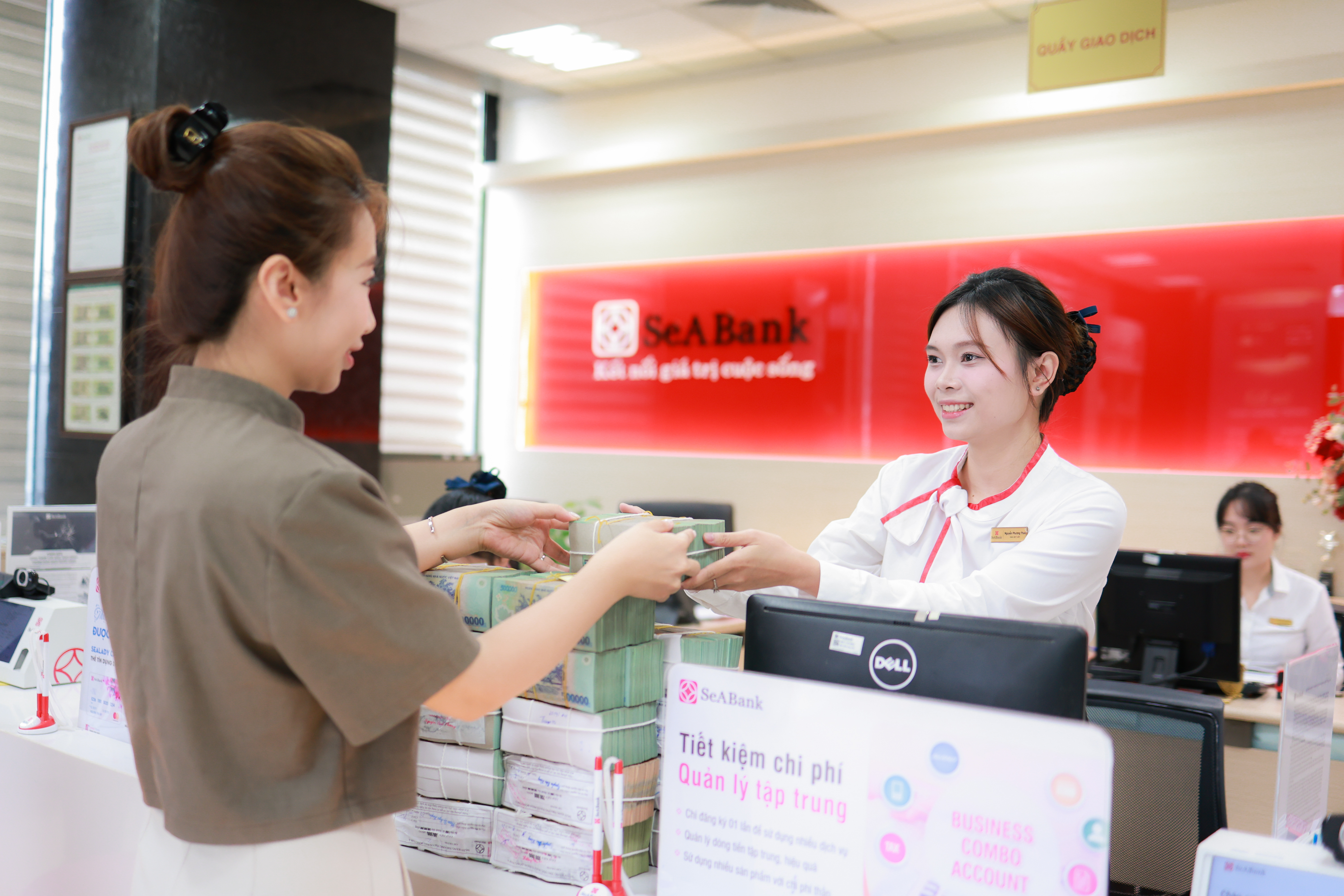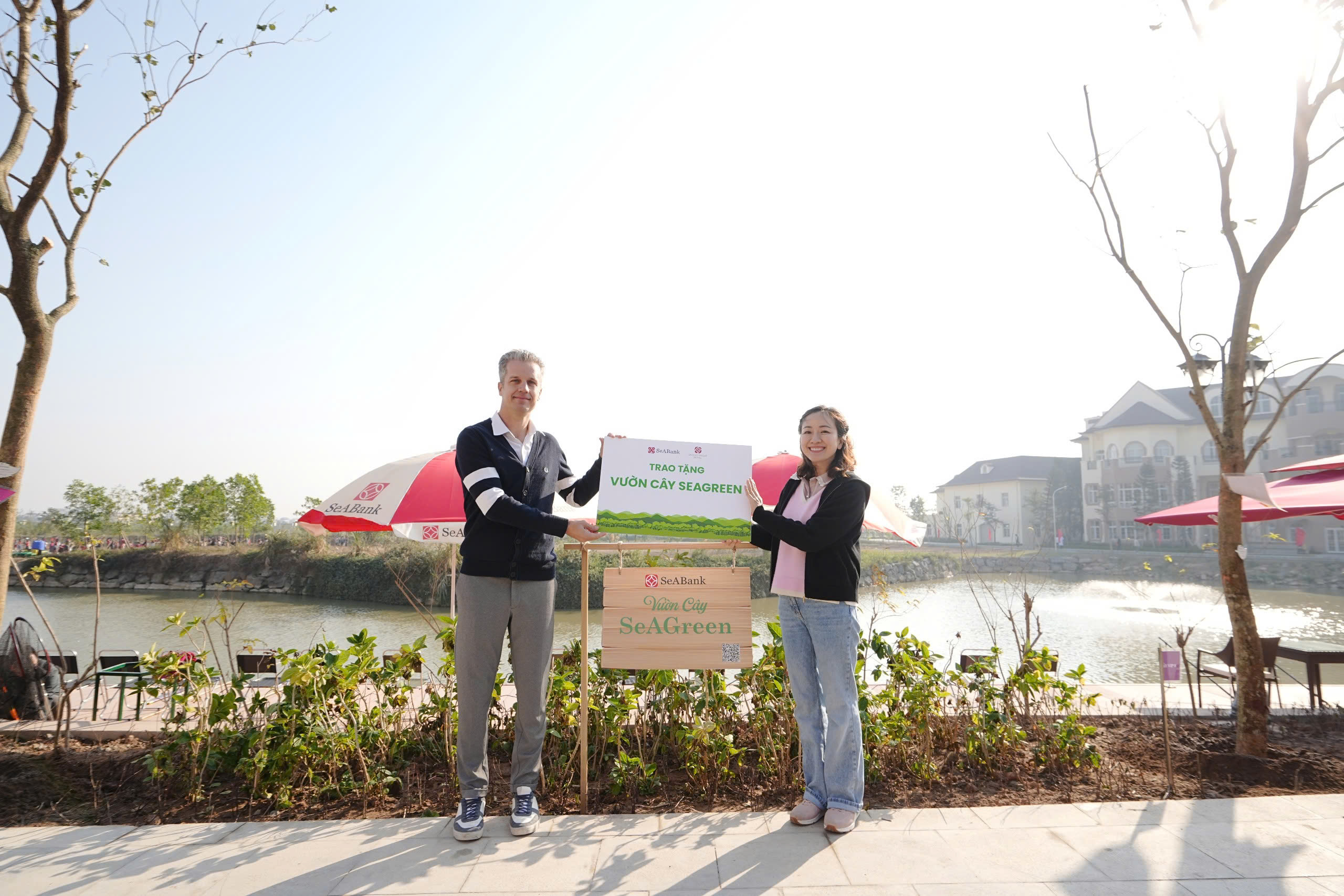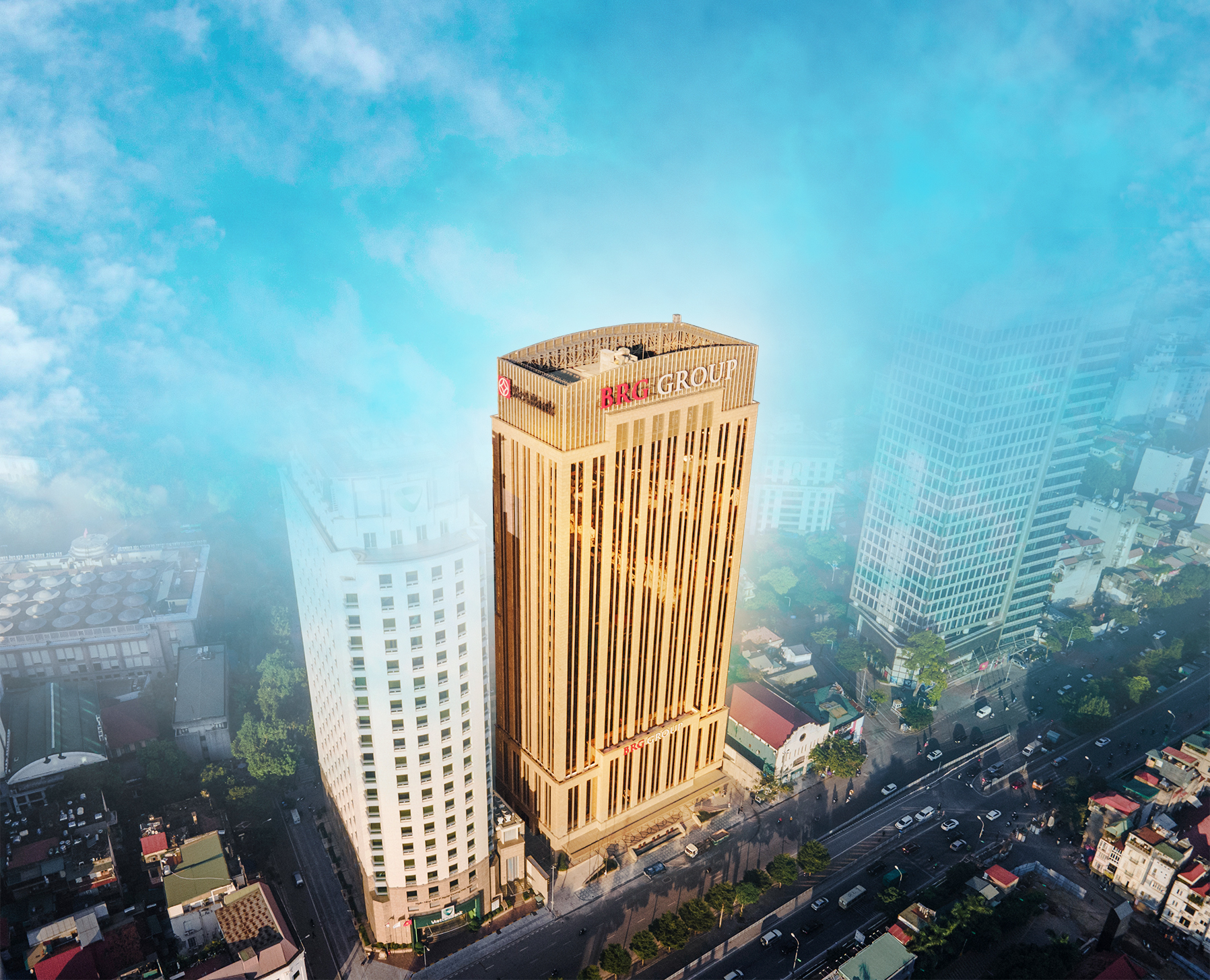
In recent years, ESG has become a prominent trend in the global financial market since investors and stakeholders become more aware of the impact of their investments on the environment, society and corporate governance. As financial intermediaries providing capital for the economy, banks are considered an important bridge and an indispensable factor in implementing ESG, bringing about mutual benefits for both the bank and the economy.
It is not until now that banks start implementing ESG. In fact, many banks, including SeABank, for many years, have been aiming for sustainable development associated with social and community responsibility, particularly optimizing corporate governance, prioritizing green products and services, promoting financing for green and environmentally friendly projects. The set of ESG criteria helps SeABank measure and quantify each goal clearly as well as developing a sustainable development strategy, thus enhancing market reputation and competitiveness. As a result, SeABank has received the trust and investments totaling up to more than US$600 million from reputable international financial institutions such as DFC and IFC, while having its credit ratings maintained at Ba3 by Moody's for many important categories with a Stable outlook
Enhancing corporate governance
It is observed that corporate governance is not only a sole business concern but also a decisive factor for the success and sustainability of the whole banking system. Therefore, SeABank continuously improves its corporate governance, optimizes operating model, strengthens risk management, and invests in human resource development associated with guaranteeing the rights of employees.
SeABank pioneers in implementing a governance model based on 3 lines of defense. This 3-line model enhances internal control, compliance and risk management through self-inspection, self-monitoring and cross-checking activities among lines in many forms to guarantee sustainable development goals.
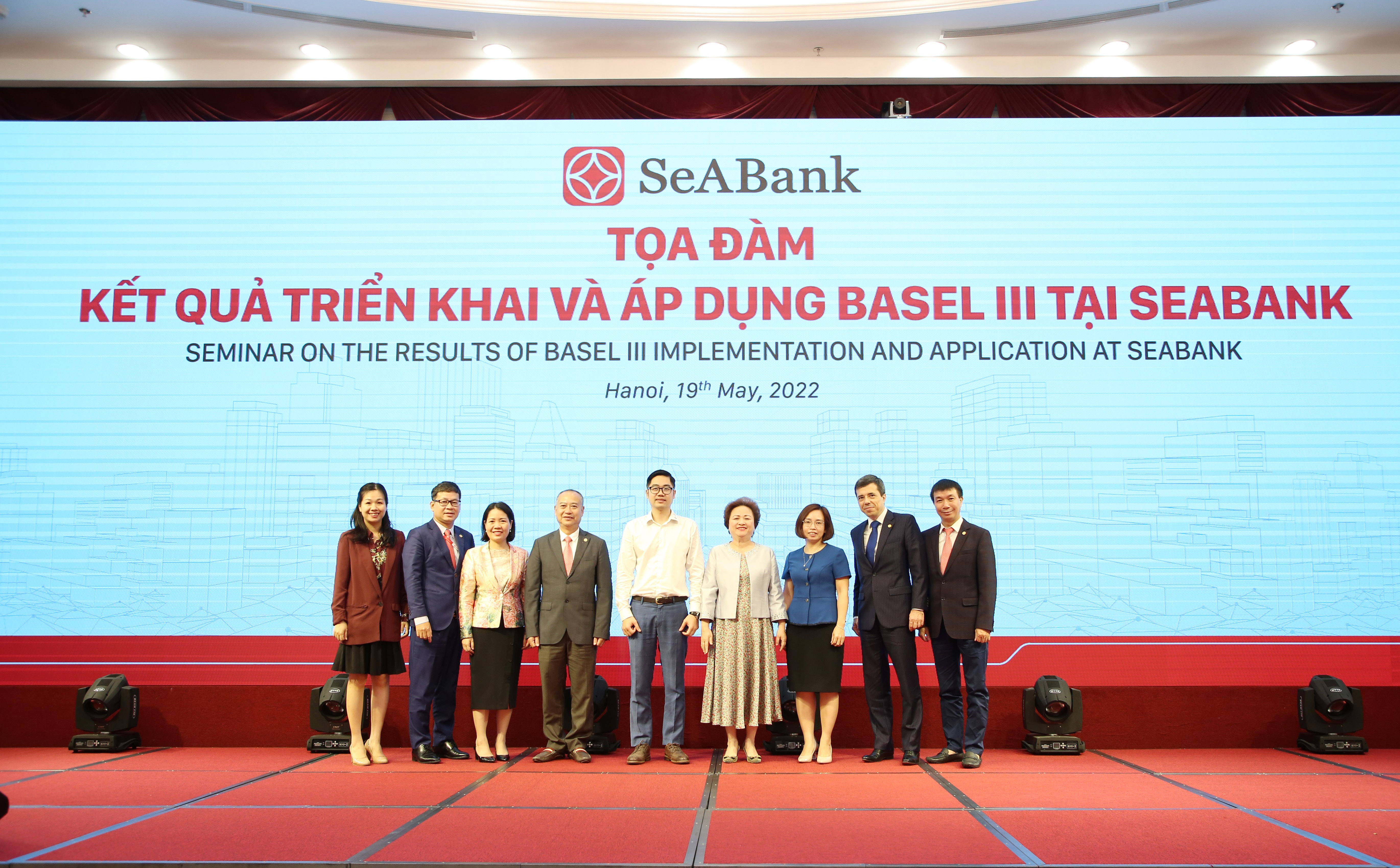
The application of Basel II and III contributes to create a solid foundation of risk management, facilitating SeABank’s healthy, safe and effective development.
With an aim of promoting capital adequacy and sustainable liquidity, SeABank pioneers in applying Basel III international risk management standard and completing three pillars of Basel II beforehand. Hence, a solid foundation of risk management has been created, which facilitates a healthy, safe and effective development for SeABank. Besides, Basel application demonstrates the determination and efforts of the Bank to fully meet international standards, aiming at a proactive and transparent business operations.
SeABank is also beforehand with the application of International Financial Reporting Standards (IFRS), in addition to Vietnam’s Accounting Standards, when preparing and presenting financial statements. As a result, the Bank could improve the capabilities of measuring and managing business performance, thus enhancing risk management and risk control while creating a base for reasonable resource allocation to increase capital efficiency.
In the challenging economic context, SeABank manages to have upgraded or maintained credit ratings by Moody's. In the latest rating announcement, Moody's maintained SeABank’s Ba3 ratings for many important categories with a Stable outlook. This reflects the organization’s expectation and positive assessment of SeABank's high and improving capital adequacy
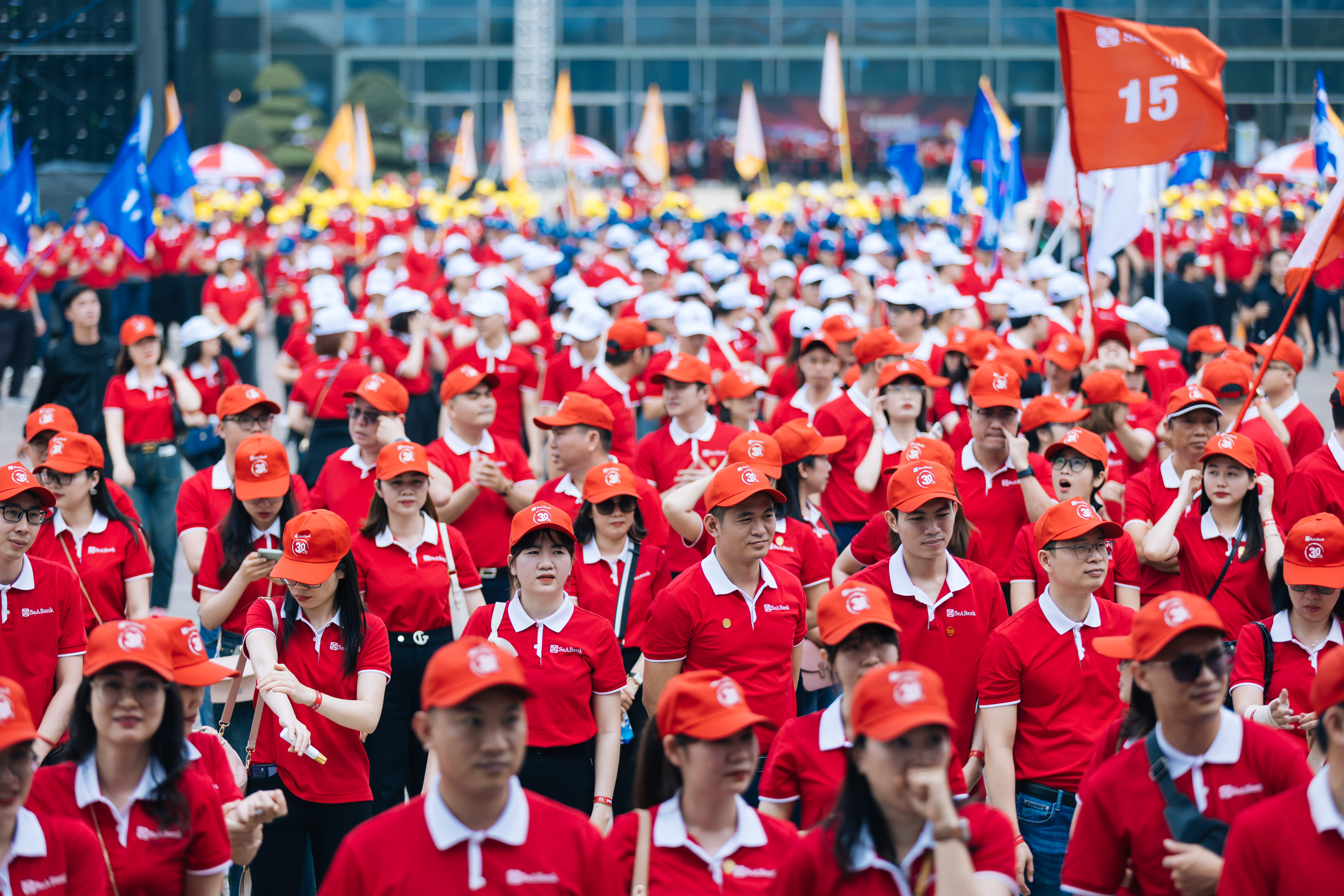
SeABank’s employees pridefully wear their uniform.
Along with applying advanced risk management models and methods in line with international standards, SeABank pays special attention to the organizational model, management structure while systematically investing in human resources. SeABank's organizational structure is continuously improved to enhance management and governance capacity. SeABank's current management board includes experienced members who has years of dedicated services and significant contributions to the development of the Bank. This promises to help the Bank improve its competitiveness and move towards sustainable development.
Identifying human resources as one of the key factors when evaluating the sustainable development of a business, SeABank always prioritizes ‘human’ factor to build a cohesive, professional and humane working environment. Each employee when joining SeABank is trained from the most basic knowledge and soft skills to professional expertise and management capacity. The training is delivered by internal teachers and leading training partners in Vietnam such as Crestcom Vietnam, iChange Center, etc.
SeABank's remuneration policy is always updated to enhance competitiveness, to merit the contribution and dedication of each individual to the development of the Bank. Specifically, competitive annual salary increase in line with market range, comprehensive health insurance - SeACare, preferential loan package for employees - SeAStaff Privilege, periodic health check-ups, issuance of optional stock for employees - SeAESOP, and a series of appreciation programs for employees and their families with purposes of developing corporate culture, etc
Prioritizing Green Bank
With the motto of customer centricity, SeABank aims to "tailor" products and services to fulfill demands of each segment, with a special priority on "greening" the bank. To promote the model of green finance, SeABank focuses on developing green financial products and services. For instance, the implementation of ebanking applications - SeAMobile/SeAMobile Biz/SeANet not only brings convenience to customers but also reduces the use of paper and ink. This helps reduce costs and demonstrate SeABank’s strong commitment to take responsibility for the environment and society.
Placing an emphasis on its sustainable development strategy, SeABank prioritizes resources for financing green and environmentally friendly projects, especially projects in the field of energy efficiency and energy loss minimization
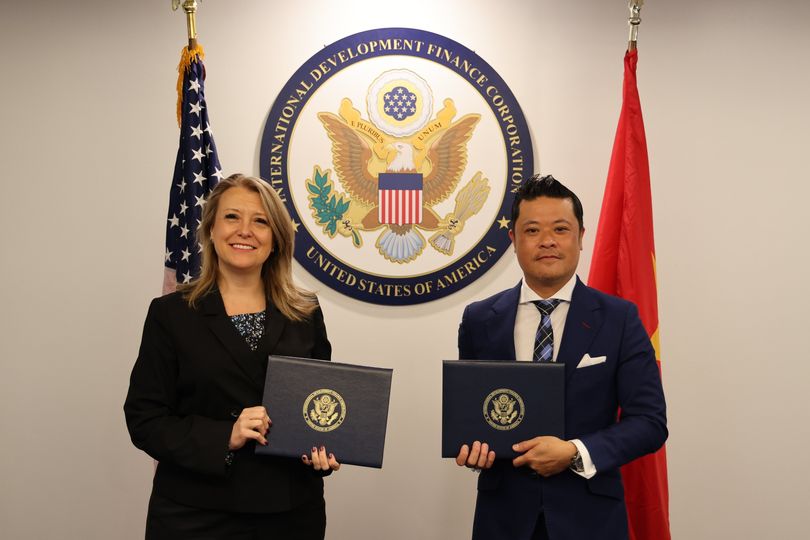
Representatives of DFC and SeABank signed memorandum of understanding for the first disbursement worth US$200 million (January 31, 2023, Washington D.C.)
The application of ESG has opened up opportunities for SeABank to expand its market and develop credit products while receiving green capital flows from international financial institutions. By now, SeABank has received various credit package, trade finance and investments worth up to nearly US$600 million from reputable international financial groups/institutions such as IFC, DFC and many international investment funds. This capital source together with internal capacity have facilitated SeABank’s provision of flexible financial solutions, optimization of capital use for small and medium enterprises (SMEs), especially women-owned SMEs. In addition, SeABank also focuses on disbursing for projects related to green credit and climate change mitigation, lending to individual customers to buy green-building certified houses. Thereby, the Bank aims at bringing positive impacts to the socio-economy and the environment.
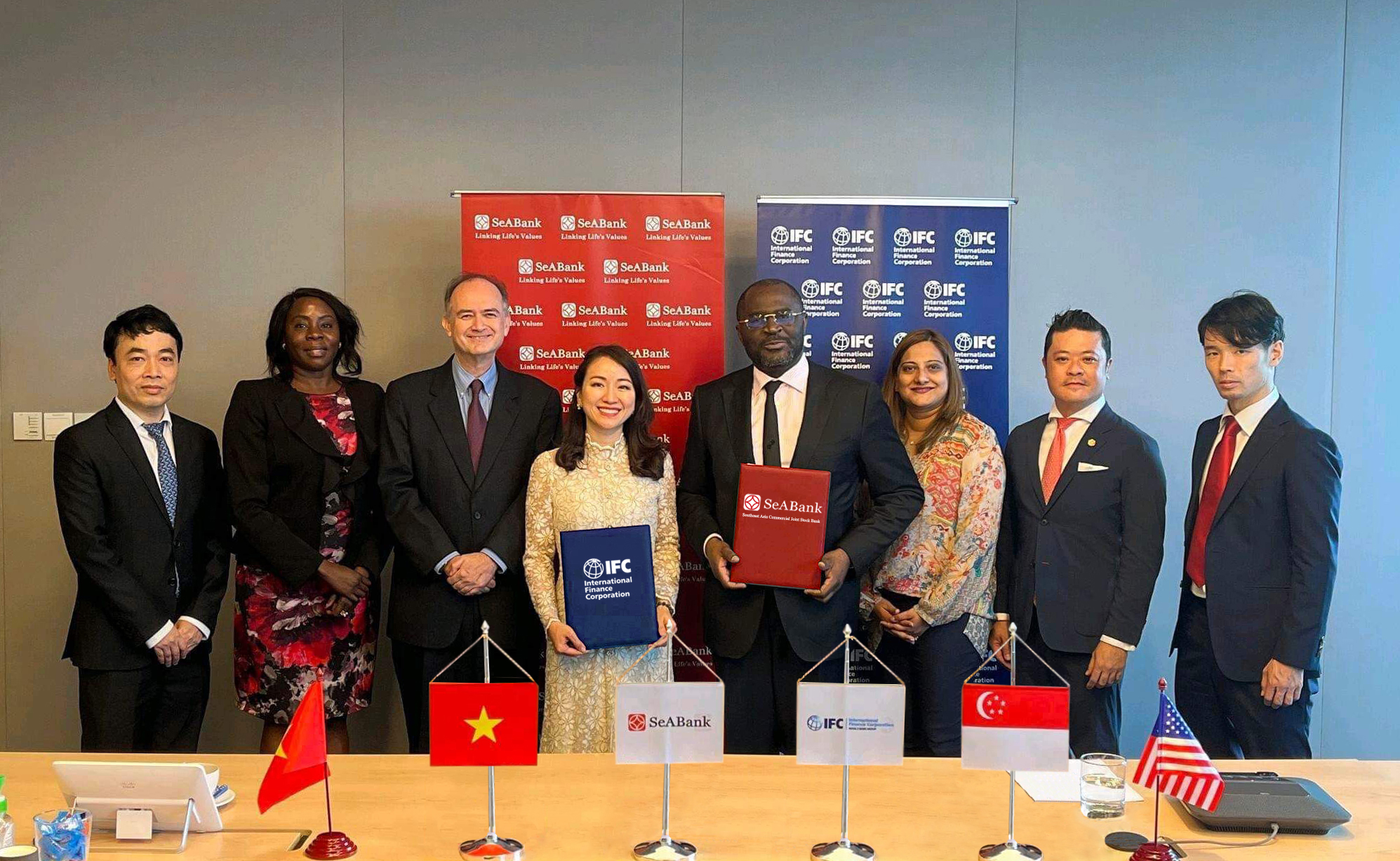
Representatives of IFC and SeABank signed cooperation agreement in Singapore.
To manage the environmental and social impacts of lending activities, SeABank has integrated environmental and social factors into the Bank's credit risk management process. Particularly, SeABank has issued a Credit Exclusion List of sectors with negative socio-environmental impacts, based on which all credit granting transactions are screened and filtered. For transactions that are not included in the Exclusions List, SeABank will further assess their environmental and social risks, propose specific mitigation measures if risks are identified. SeABank aims to become a pioneering, active bank in socio-environmental risk management so as to spread the spirit of environmental and community protection to all customers and partners.
Striving for good values
Along with business activities, SeABank has been persistently pursuing a development strategy that aims at delivering sustainable values to the community and society. Following the motto “Community-oriented” - one of the Bank's 5 core values for years, SeABank has organized several annual charity activities such as Spring of Love, SeABankers for the Children, Day of Love - September 7th, Citizens' Week, Warm Blankets for Early Winter, etc. Millions of gifts worth billions of VND have been given away each year through those activities. This has been an encouragement and motivation for people in difficulties to overcome life’s obstacles.
During the outbreak of Covid-19, SeABank has donated nearly VND90 billion to support local authorities and people directly affected by the pandemic nationwide. In response to the policy by the State Bank of Vietnam, SeABank has reduced lending interest rates for customers to ease the severe impacts of the pandemic on businesses and people. In 2021, the total interest rate reduction for customers reached VND287 billion, equivalent to 552% of the Bank’s commitment, with the total reduced debt value of VND79,237 billion for 58,522 customers.
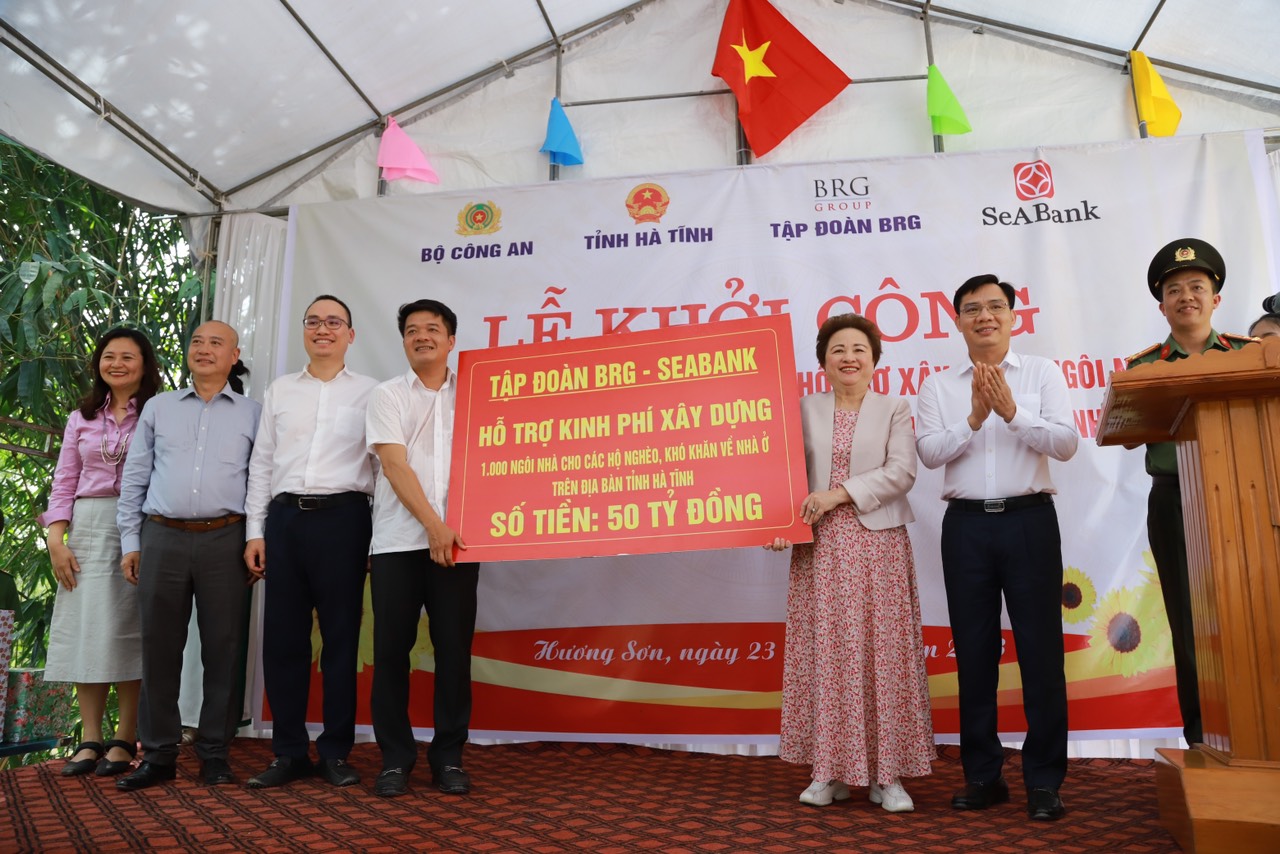
SeABank donates charity houses for the poor in Ha Tinh province.
Environment protection is one of the top priorities in SeABank’s journey to sustainable development. Joining with the Government to "Plant one billion trees in the period of 2021-2025", SeABank has donated nearly 300,000 trees to different provinces (Thanh Hoa, Dak Lak, Ha Tinh, Long An), aiming to support afforestation, foster economic development, preserve biodiversity and conserve resources.
Besides planting green trees, SeABank sows “green seeds” of hope by nurturing the academic dream of students in difficulties. SeABank’s “Dream Nurturing” Fund, founded in 2015 with the hope of lighting up the future generation, has supported more than 200 poor studious students. Each student is annually sponsored VND12 million as general education encouragement scholarship until high-school graduation. The total value of scholarships (including general education scholarships and start-up scholarships) that SeABank has granted is more than VND10.57 billion.
In addition, SeABank has also collaborated with many localities in building charity houses, actualizing the poor’s dream of having a house to shelter from the severe weather. By now, 700 houses have been donated to the poor in Ha Tinh, Nghe An, Dien Bien, etc.
2024 marks SeABank's 30-year journey of continuous development associated with the prosperity of the country. SeABank will continue its attempt to improve corporate governance efficiency, diversify products, improve service quality, and provide flexible financial solutions to help corporate customers optimize the efficiency of capital use, thereby delivering good values to the community and society. These achievements will be the premise for SeABank to grow stronger and develop sustainably, contributing to the growth of the economy.


